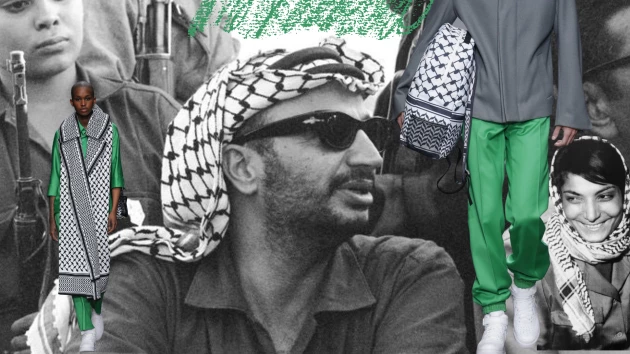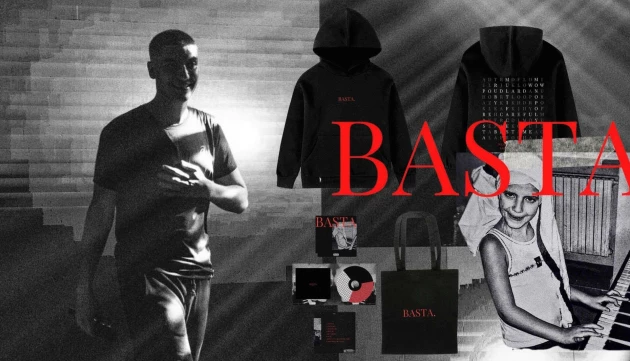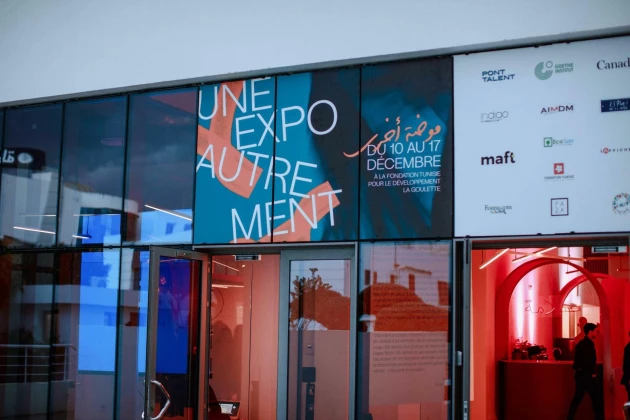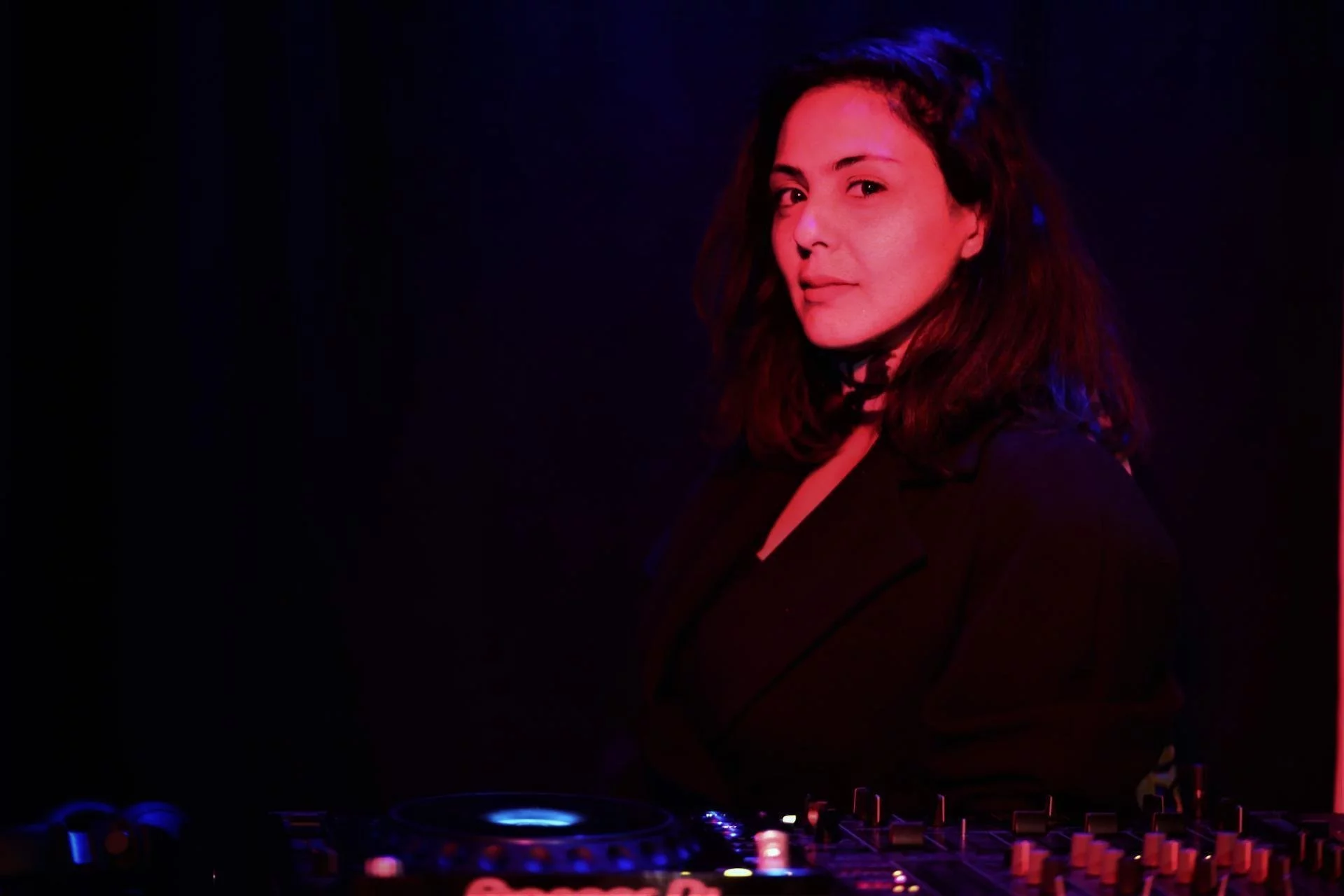
We celebrate the difference
Female DJs stepping up: Interview with Olfa Arfaoui, co-founder of La Fabrique Art Studio
6 min read — Jan 25, 2021
So here’s another inspiring woman to discover. It was very exciting reaching out and getting to know Olfa Arfaoui, a social entrepreneur and co-founder of La Fabrique, an artistic co-working space and art studio. We’re so thrilled to share with you this interesting interview, where we talked with Olfa about music, the situation of women DJs in Tunisia and the MENA region, and her journey as a social entrepreneur who aspires to make a change.
And if by any chance you dreamt of becoming a female DJ, this interview is especially for you.
Can you tell us more about yourself?
Olfa Arfaoui, I’m a social influence entrepreneur. I have been working for a decade on gender equality projects for the International Development Cooperation and I managed and designed gender diversity & gender equality projects including the private sector and civil society organizations. I was also the executive producer of a Media campaign entitled “ I am here - Ana hunna” to empower women and girls in economy and society films and social debates. I have been working on a project based in the MENA region which campuses 4 main countries Jordan, Egypt, Morocco & Tunisia.
In 2017 I co-founded a coworking space called La Fabrique Art Studio which is a community-driven art space to encourage young artists and creatives to give them access to opportunities like artistic residencies, networking, collaborations, and also training.
We do capacity development for artists and creatives and we focus mostly on minorities groups and there’s something I don’t like but women and girls are considered minority groups.
Can you tell us more about La Fabrique?
La Fabrique was launched in 2017 by me and the musician and artist Mohamed Ben Slama. We have a studio for musicians and artists to record their music but it’s also a space for creatives to work and collaborate and share their projects.
The idea of la Fabrique is to encourage emerging creatives and also give them access to opportunities.
How about the all-female DJ School? Where did the idea come from?
I was passionate about music, I used to play the violin but then I had to stop at a certain point but the idea of playing music stayed so I participated in a workshop for female DJs back in 2018 with the GOETHE Institut Tunis; it was with the Turkish-German DJ and producer DJ Ipek. We had one week of training and then we performed at Yuka.
After that workshop, we wanted to continue the practice and (the craftsmanship) so I stayed in touch with the instructor and DJ Ipek and I kept asking her about the materials, what I should purchase, what were the resources needed. And then I decided to run a school for Female DJs. The project is of course incubated at La Fabrique. We started our first workshop in 2018. It was on 8 March, on International Women’s Day, so I asked Rim Charfi ( Noy ära ) if she wanted to join us and be our teacher.
And that’s how we started. We started very small and then our community started growing.
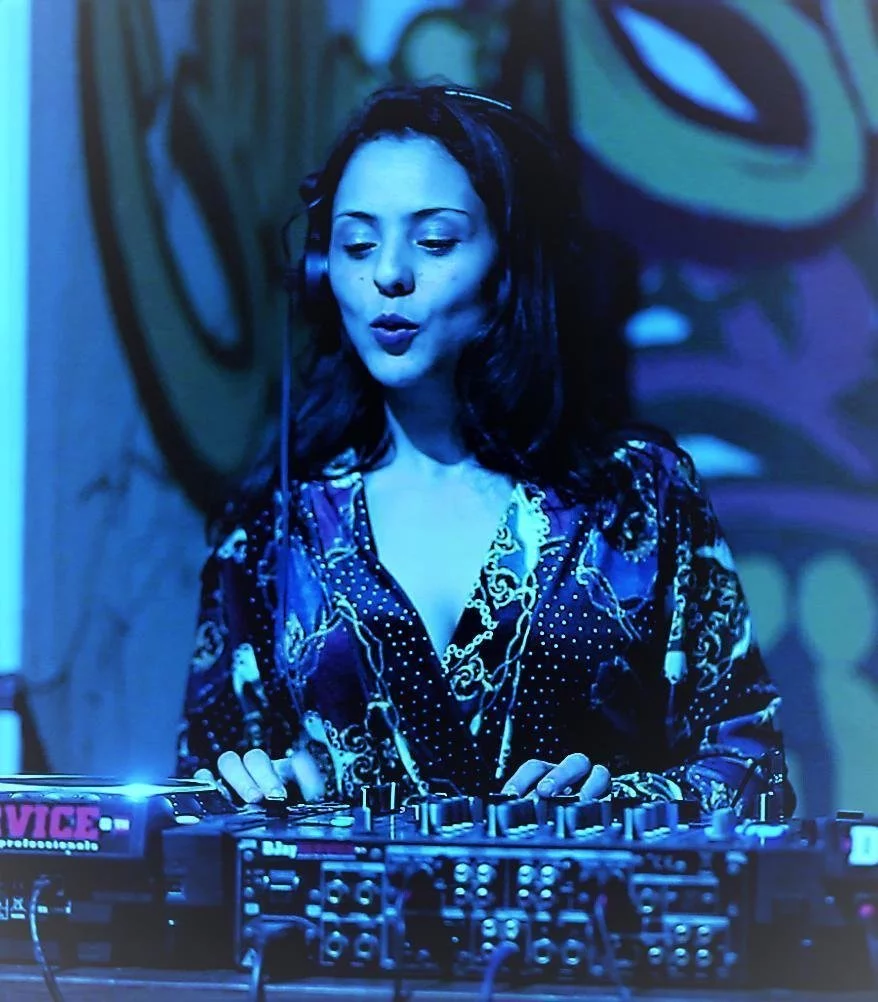 Copyright : La fabrique Art Studio
Copyright : La fabrique Art Studio How did the campaign «16 DJs of activism against gender-based violence» start?
Our approach at La Fabrique came from the urge of using art as a tool for activism, we are much in artivism (art for positive social change). For the event, we wanted to do something and to give the ability to our students to be empowered and a platform to raise their voice and also to play an active role to raise awareness to spark the debate around violence, racism and sexism, and all forms of violence against women girls and non-binary persons.
We took the 16 days of activism and shifted them to 16 DJs of activism and then we opened a call for students and instructors inside and outside the academy and they liked the idea because they never thought they can play such a role and can be engaged with their art and music and they had some doubts about whether they will be able to do it right at first. It was an amazing shift for them.
We had female talents and we launched this online campaign but it's also an online festival. Each day we had a talent testimonial and a music session for 30 mins, which started from 25 November to 10 December 2020.
What kind of struggles are Female DJs facing in Tunisia and the Middle East? (besides gender-based violence)
The main challenges are access to resources (training, opportunities, artistic residencies) all kinds of career development mechanisms, they also face a lot of gender-based stereotypes (this is not for women, this is men’s job, women cant be in a nightlife environment) there’s also toxic masculinity in sense lots of violence and discrimination. And this was one of our objectives, to tackle toxic masculinity behaviors. Women are not equally paid as men even in this job and also for like, many women who have children find out this balance between work and life is a huge challenge.
How do you believe we can improve the situation of Female DJs in Tunisia and the Middle East?
It’s highly important to encourage such initiatives as 16 DJs of activism like creating safe spaces for female talents to advance their career in art and especially in music. Besides, it is very important to raise awareness and to deconstruct stereotypes about the job of a DJ which we don’t have much information about nor know its value. I also think creating a funding mechanism for female artists can encourage many to start their journeys as DJs.
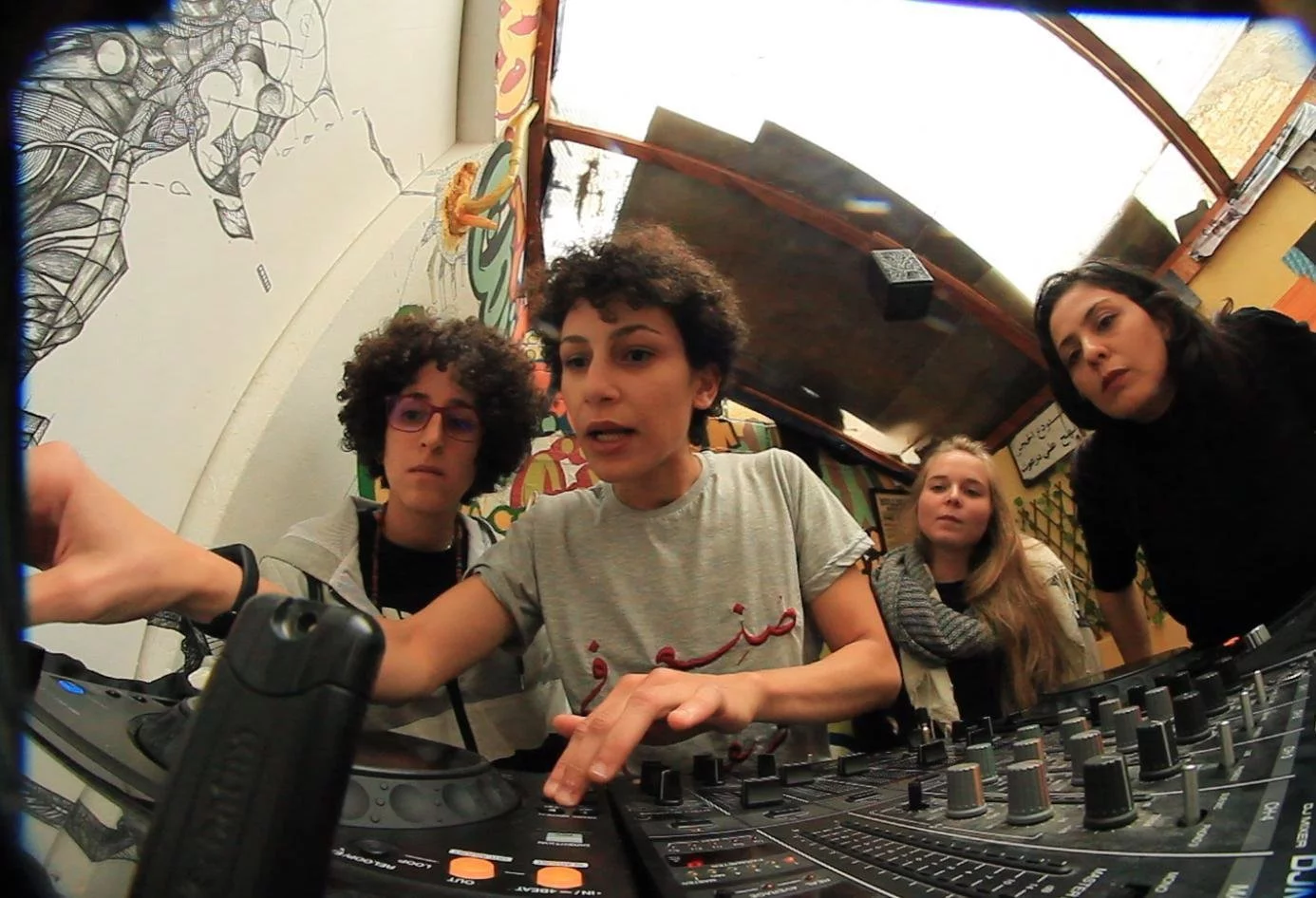 Copyright : La Fabrique Art Studio
Copyright : La Fabrique Art Studio How do you envision the future of Tunisian women DJs?
The electronic music industry is growing in Tunisia and also in the MENA region and there was this article I read a few weeks ago that said that youth between the age of 15-35 will be around 70% of the MENA region population. The population is growing to be younger and this youth has a lot of interest in Electronic Music.
There is also another important aspect, the digital component; nowadays, well-established musicians are trying to implement more and more digital platforms and production in their music because it is much easier and the results are amazing. Because you can create music in a very short time with much fewer expenses.
What do you think of the current Tunisian electronic music scene/industry?
I think it is still male-dominated and it is relevant in other countries. The promoters are mostly men so they tend to promote men. They tend to invite men, to network with men, it is like the old boys club in this industry. I think it is very important to break this chain by giving more visibility to talents and showing that talent does not depend on gender.
What advice do you give to women who aspire to have a career in the electronic Music Scene?
Trust yourself and trust your talent try to look for female role models to be inspired and try to get into networks that are providing opportunities for female artists.
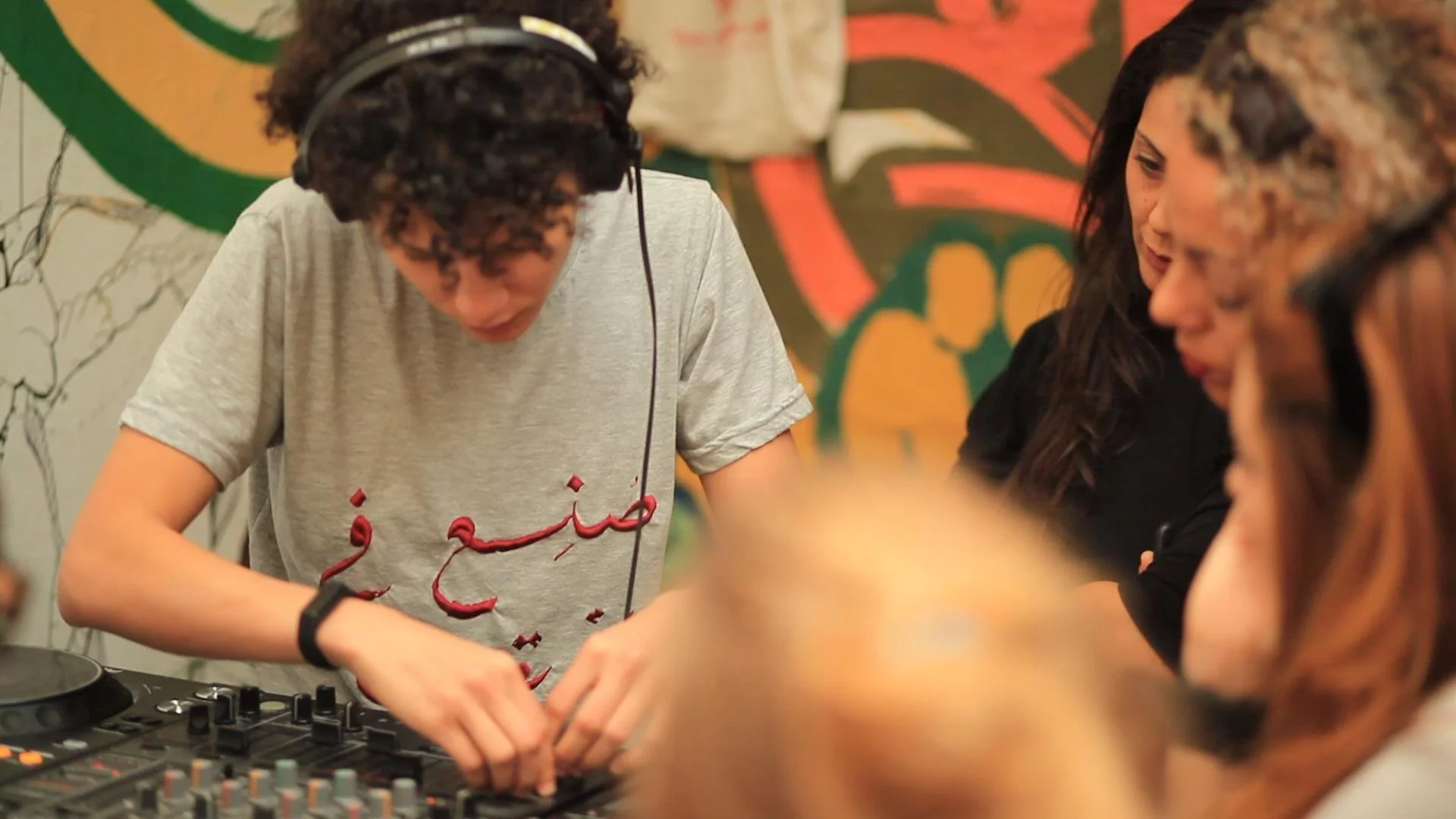 Copyright : La fabrique Art Studio
Copyright : La fabrique Art Studio Do you have any upcoming events?
La fabrique and the female DJ school are also organizing FeMENA which is a network, movement & festival toward Gender DIVERSITY & Inclusion in Electronic music & digital arts in THE MENA REGION AND BEYOND.
We are an inclusive movement, A network & festival of female Talents in electronic music and digital arts industries led by La Fabrique Art Studio (tunisia) together with four seasons festival( Morocco) & Future female sound (Danemark).
FeMENA في منا
<noun>
a: (fe) for female and non-binary talents in electronic music and digital arts
b: (mena) for middle east, north africa and beyond
<action>
a: describes an action to make female and non-binary talents more visible. It means in arabic “there is of us”
b: a network and a movement to promote gender diversity and equality in alternative arts and new technologies.
